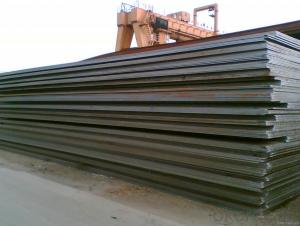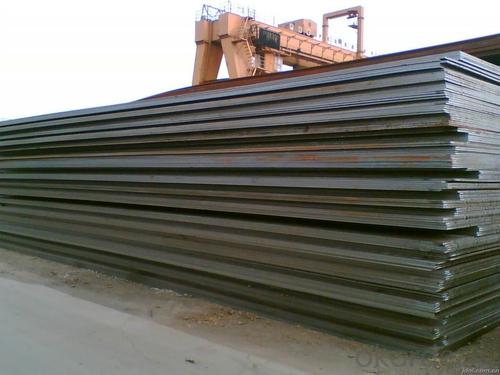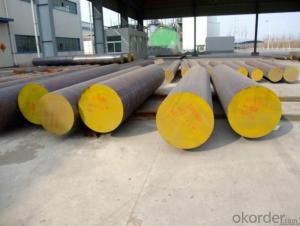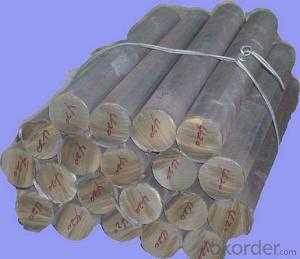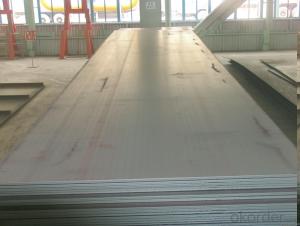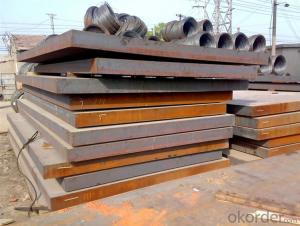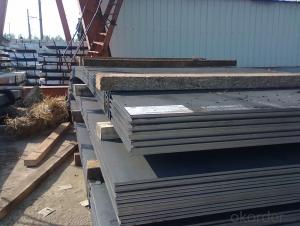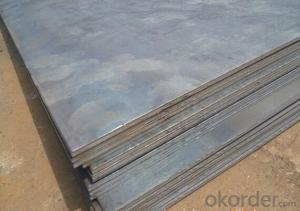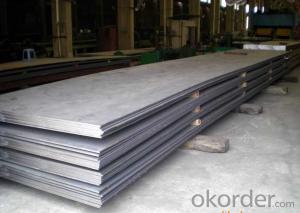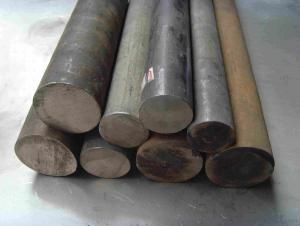Special Steel JIS SKS3 Cold-work Die Alloy Tool Steel Plate
- Loading Port:
- China main port
- Payment Terms:
- TT OR LC
- Min Order Qty:
- 30 m.t.
- Supply Capability:
- 10000 m.t./month
OKorder Service Pledge
OKorder Financial Service
You Might Also Like
Specification
Product information:
Material | Tool and Mould Steel Flat Bar | Dimension | Thickness: 20-400mm, Width: 60-600mm |
Process | EAF + LF + VD + Forged + Heat Treatment (optional) | M.O.Q | 1 Metric Ton |
Heat Treatment | Normalized / Annealed / Quenched / tempered | Trade Term | EXW,FOB,CIF |
Surface Condition | Black coat/milled/turned/peeled | Payment Term | T/T or L/C at sight |
Delivery Condition | Hot forged +Rough machined (black surface after Q/T)+ Turned (optional) | Packing | Seaworthy packing ,wooden case , carton,woven bag or at client's requires |
Test | Ultrasonic test according to SEP 1921-84 D/d | Mills | TISCO, Baosteel, JISCO, HBIS, Xianggang, Daye, etc |
Grade | C | Si | Mn | Cr | Mo | V | W | P | S | Ni |
H13 | 0.32-0.45 | 0.80-1.20 | 0.20-0.50 | 4.75-5.50 | 1.10-1.75 | 0.80-1.20 | - | ≤0.030 | ≤0.030 | - |
D3 | 2.00-2.30 | ≤0.40 | ≤0.40 | 11.5-13.0 | - | - | - | ≤0.030 | ≤0.030 | - |
D5 | 1.45~1.70 | ≤0.40 | ≤0.40 | 11.0-12.50 | 0.40~0.60 | 0.15~0.30 | - | ≤0.030 | - | - |
D2 | 1.40-1.60 | ≤0.60 | ≤0.60 | 11.0-13.0 | 0.7-1.20 | 0.5-1.0 | 0.70-1.20 | ≤0.030 | ≤0.030 | - |
DC53 | 0.9-1.10 | 0.80-1.20 | ≤0.40 | 7.50-8.50 | 1.80-2.20 | - | - | ≤0.03 | ≤0.03 | - |
Product Show:
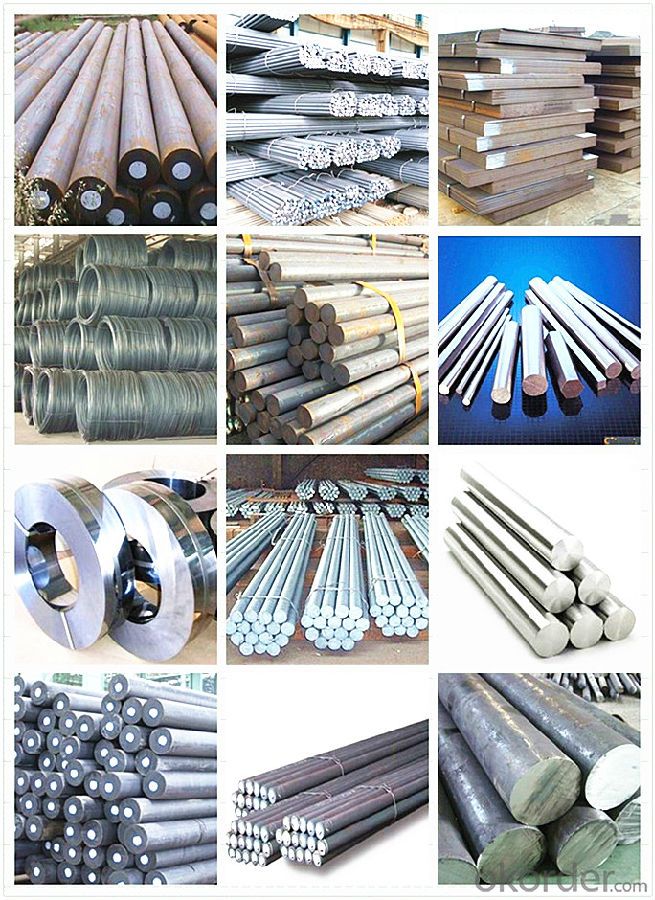
Workshop Show:
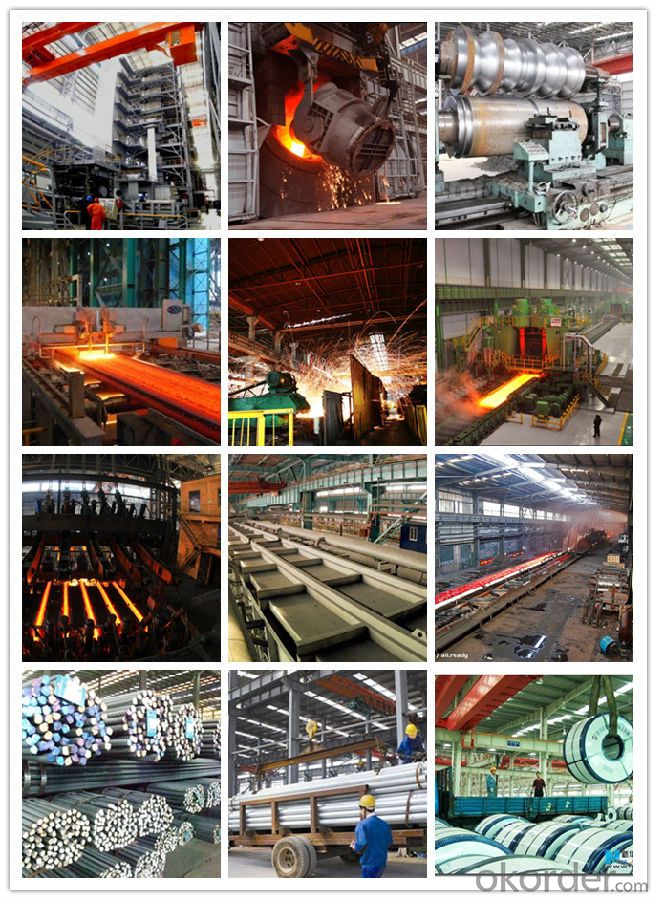
Shipping
1. FedEx/DHL/UPS/TNT for samples, Door-to-Door;
2. By Air or by Sea for batch goods, for FCL; Airport/ Port receiving;
3. Customers specifying freight forwarders or negotiable shipping methods!
Delivery Time: 3-7 days for samples; 5-25 days for batch goods.
Payment Terms
1.Payment: T/T, L/C, Western Union, MoneyGram,PayPal; 30% deposits; 70% balance before delivery.
2.MOQ: 1pcs
3.Warranty : 3 years
4.Package Informations: 1) EXPORT, In 20 feet (GW 25 ton) or 40 feet Container (GW 25 ton)
2)as customer's requirement
Why choose us?
(1) The leading exporter in China special steel industry.
(2) Large stocks for various sizes, fast delivery date.
(3) Good business relationship with China famous factories.
(4) More than 7 years steel exporting experience.
(5) Good after-sales service guarantee.
- Q: What are the different classifications of special steel?
- Special steel is a broad term that encompasses various types of steel alloys that possess unique properties and characteristics, making them suitable for specific applications. There are several classifications of special steel, including: 1. Stainless Steel: This type of special steel contains a high percentage of chromium, which provides excellent corrosion resistance. It also typically contains other elements like nickel and molybdenum, enhancing its strength and durability. Stainless steel is commonly used in applications that require resistance to oxidation, heat, chemicals, and wear, such as in food processing, medical devices, and construction. 2. Tool Steel: Tool steel is specifically designed for manufacturing tools, dies, and molds. It is known for its exceptional hardness, wear resistance, and toughness. Tool steel is further classified into several subcategories, including high-speed steel (HSS), cold work steel, hot work steel, and plastic mold steel, each tailored for specific tooling applications. 3. Alloy Steel: Alloy steel is a type of special steel that contains additional alloying elements apart from carbon. These elements, such as manganese, silicon, nickel, chromium, and molybdenum, are added to enhance specific properties like strength, toughness, hardenability, and corrosion resistance. Alloy steels are used in various applications, such as automotive components, machinery, construction, and aerospace. 4. Spring Steel: This type of special steel is specifically designed to withstand repeated bending or twisting without permanently deforming. Spring steel has excellent elasticity and fatigue resistance, making it suitable for applications such as springs, suspension systems, and high-performance automotive parts. 5. Bearing Steel: Bearing steel is engineered to provide high hardness, wear resistance, and dimensional stability necessary for manufacturing bearings. It typically contains high levels of carbon, chromium, and other alloying elements, ensuring the required mechanical properties for reliable and long-lasting bearings. 6. Electrical Steel: Electrical steel, also known as silicon steel, is specifically designed for electrical applications. It possesses low electrical resistivity and high magnetic permeability, allowing it to efficiently conduct and transform electrical energy. Electrical steel is commonly used in transformers, electric motors, and generators. These classifications of special steel highlight the versatility and tailored properties of different steel alloys, enabling their application in a wide range of industries and specialized uses.
- Q: What are the properties of martensitic steel?
- Martensitic steel is a type of stainless steel known for its high strength, hardness, and resistance to corrosion. It is characterized by a unique microstructure, formed through rapid cooling or quenching from high temperatures, which results in a hard, brittle material. Martensitic steel typically exhibits excellent wear resistance, making it suitable for applications such as cutlery, knives, and industrial tools. However, it may have reduced toughness and lower ductility compared to other stainless steel types.
- Q: How is special steel used in the production of aircraft landing gear?
- Special steel is used in the production of aircraft landing gear due to its high strength, durability, and resistance to fatigue. It helps ensure the landing gear can withstand the stress and impact forces experienced during takeoff, landing, and taxiing. Additionally, special steel alloys are used to create components with precise dimensions and superior corrosion resistance, ensuring the landing gear performs reliably in various environmental conditions.
- Q: How does special steel contribute to the automotive noise reduction?
- Special steel contributes to automotive noise reduction in several ways. Firstly, it is used in the manufacturing of the vehicle's structure and body, providing high strength and stiffness, which helps reduce vibrations and noise transmission. Additionally, special steel can be used in the production of engine components, such as exhaust systems, mufflers, and catalytic converters, which help dampen and absorb noise generated by the engine. Furthermore, the use of special steel in the construction of suspension systems and other mechanical components can also contribute to minimizing noise and vibrations, resulting in a quieter and more comfortable driving experience.
- Q: How is special steel used in the defense industry?
- Special steel is used in the defense industry for various applications such as manufacturing armored vehicles, aircraft carriers, submarines, and military-grade firearms. Its exceptional strength, durability, and resistance to high temperatures make it ideal for constructing critical components and structures that require enhanced protection and performance in combat situations.
- Q: How does special steel contribute to the formability of products?
- Special steel, also known as alloy steel, plays a crucial role in enhancing the formability of products. The unique properties and composition of special steel make it an ideal choice for various industries, including automotive, aerospace, and construction. One of the key ways in which special steel contributes to the formability of products is through its exceptional strength and durability. Special steel is engineered to have a higher tensile strength compared to regular steel, which allows it to undergo significant deformation without breaking or cracking. This property enables manufacturers to shape and mold the steel into complex and intricate designs, resulting in products with enhanced formability. Additionally, special steel offers excellent resistance to deformation, known as elastic deformation. This means that even after undergoing significant stress or strain, the steel can return to its original shape, reducing the risk of permanent deformation. This characteristic is especially beneficial in applications where products need to withstand repeated bending or shaping without losing their structural integrity. Moreover, special steel often contains specific alloying elements such as chromium, nickel, or molybdenum, which further improve its formability. These alloying elements enhance the steel's ability to be easily formed and manipulated, making it more ductile and reducing the risk of cracking during the forming process. Furthermore, special steel can be heat-treated to modify its mechanical properties and enhance its formability. Through various heat treatment processes such as annealing or quenching, the steel can be made more malleable, allowing it to be easily shaped and formed into desired products. Overall, special steel plays a crucial role in improving the formability of products due to its exceptional strength, resistance to deformation, alloying elements, and heat-treatability. These properties enable manufacturers to create products with intricate designs and complex shapes, meeting the diverse needs of different industries while ensuring durability and structural integrity.
- Q: What are the applications of special steel in the manufacturing supply chain?
- Special steel has a wide range of applications in the manufacturing supply chain. It is commonly used in the production of machinery, tools, and equipment due to its exceptional strength, durability, and resistance to wear and corrosion. Special steel is also utilized in the automotive and aerospace industries for components that require high performance and reliability. Additionally, it finds use in construction, energy, and defense sectors, among others. Overall, special steel plays a crucial role in enhancing the quality and efficiency of various manufacturing processes and end products.
- Q: How are copper alloys used in electrical applications?
- Copper alloys are widely used in electrical applications due to their excellent conductivity and corrosion resistance. They are used to manufacture electrical wires, connectors, and busbars, ensuring efficient transmission of electricity. Additionally, copper alloys are utilized for electrical contacts and switches, as they provide good wear resistance and high electrical and thermal conductivity.
- Q: Can special steel be coated or plated?
- Yes, special steel can be coated or plated with various materials to enhance its properties, protect against corrosion, or improve its aesthetic appearance.
- Q: What are the different methods of improving the machinability of special steel?
- To enhance the machinability of special steel, various techniques can be employed. These techniques encompass: 1. Alloying: The machinability can be improved by incorporating specific alloying elements like sulfur, selenium, lead, or bismuth into the steel composition. These elements serve as lubricants during machining, reducing friction and cutting forces. 2. Heat treatment: Enhancing the machinability of special steel can be achieved through heat treatment processes such as annealing, normalizing, or stress relieving. These processes refine the microstructure, lower hardness, and increase ductility, facilitating easier machining. 3. Modifying the microstructure: The machinability of special steel can be enhanced by modifying its microstructure through grain refinement or controlled precipitation of carbides. Generally, fine-grained steels are easier to machine due to reduced cutting forces. 4. Surface coatings: The application of specialized coatings like titanium nitride (TiN) or diamond-like carbon (DLC) onto the surface of special steel can minimize friction, extend tool life, and enhance chip flow during machining. 5. Optimal tool selection and optimization: The choice of cutting tools with specific geometries, coatings, and cutting parameters can greatly enhance machinability. Selecting the ideal tool ensures efficient chip evacuation, minimizes heat generation, and reduces tool wear. 6. Optimization of machining parameters: Adjusting parameters such as cutting speed, feed rate, and depth of cut significantly impacts machinability. Fine-tuning these parameters helps reduce tool wear, control chip formation, and achieve superior surface finish. 7. Lubrication and cooling: Employing appropriate lubrication and cooling methods, such as cutting fluids or coolants, enhances machinability by reducing friction and heat generation during machining. This prolongs tool life and minimizes workpiece deformation. It is essential to consider that the specific technique or combination of techniques utilized to improve machinability will depend on the type of special steel and the desired machining outcome.
Send your message to us
Special Steel JIS SKS3 Cold-work Die Alloy Tool Steel Plate
- Loading Port:
- China main port
- Payment Terms:
- TT OR LC
- Min Order Qty:
- 30 m.t.
- Supply Capability:
- 10000 m.t./month
OKorder Service Pledge
OKorder Financial Service
Similar products
Hot products
Hot Searches
Related keywords
